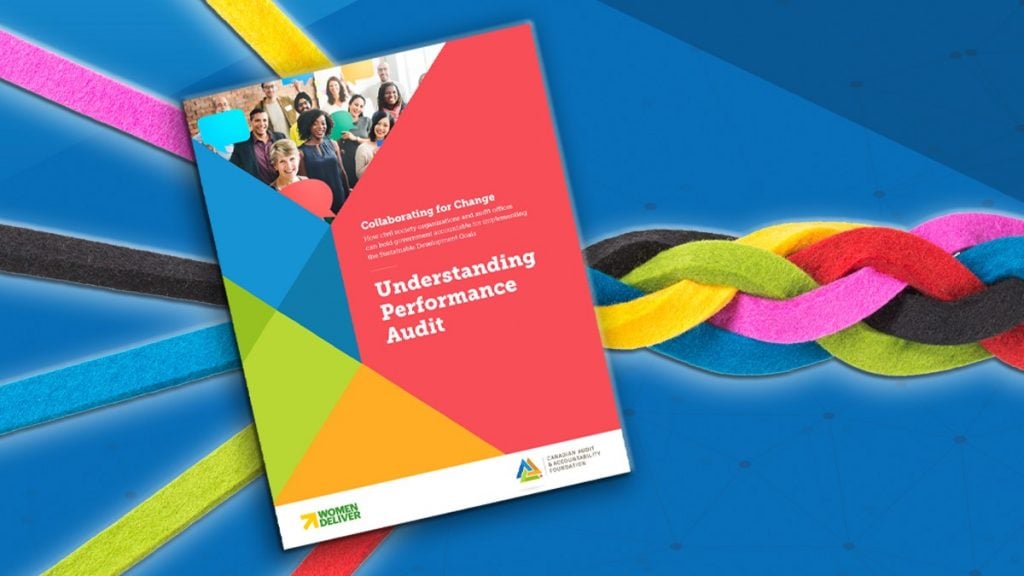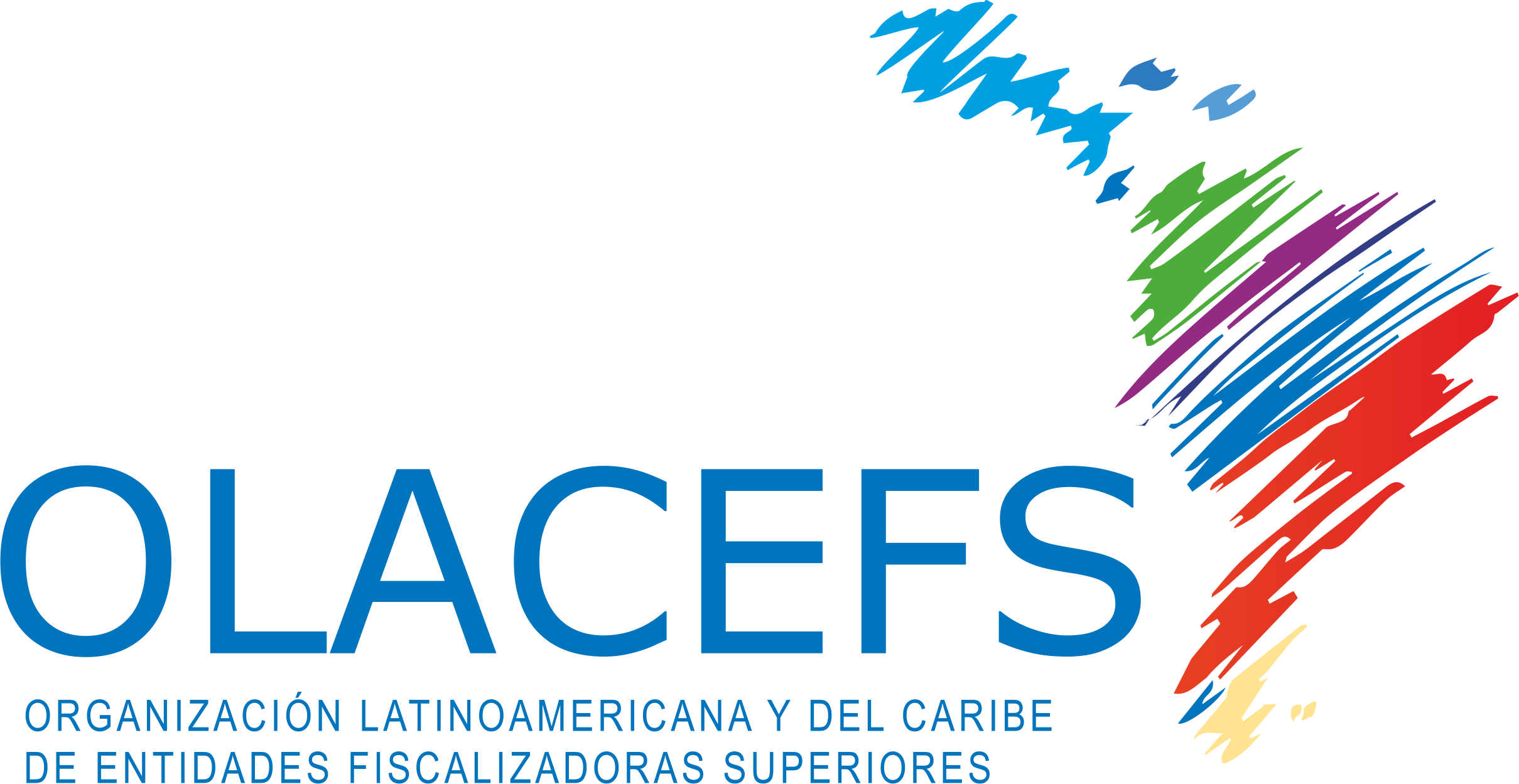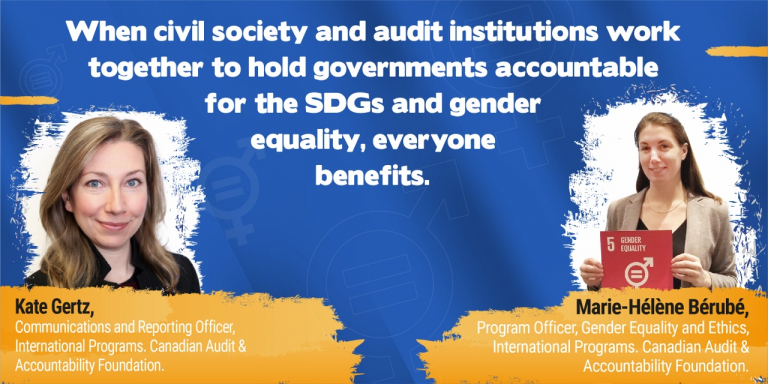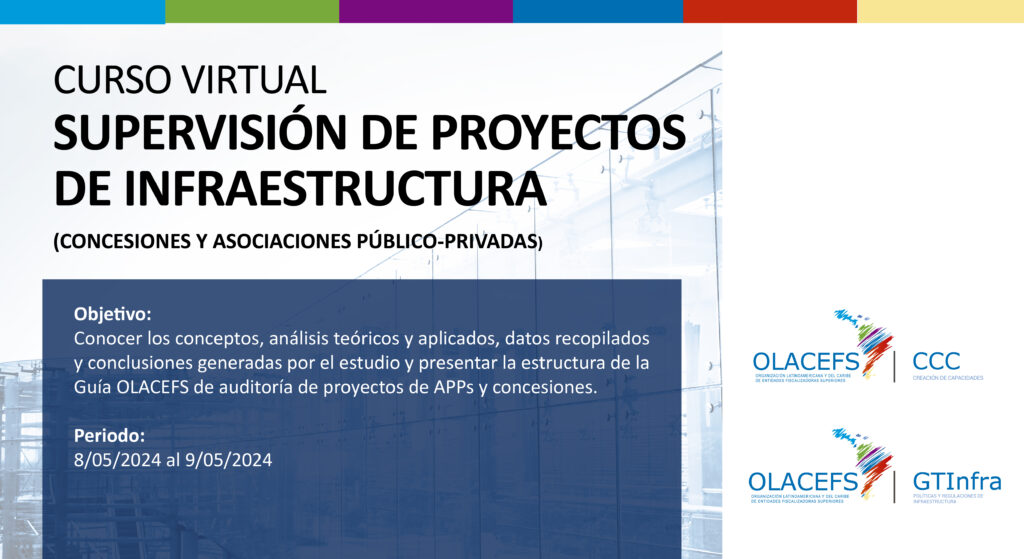Marie-Hélène Bérubé
Program Officer, Gender Equality and Ethics, International Programs
Canadian Audit & Accountability Foundation (CAAF)
Kate Gertz
Communications and Reporting Officer, International Programs
Canadian Audit & Accountability Foundation (CAAF)
To hold governments accountable for the commitments they’ve made to the Sustainable Development Goals and gender equality, we’re stronger together—with legislative auditors, elected oversight bodies, and citizens and civil society organizations (CSOs) all playing a role.
Legislative auditors in many countries are considering the 2030 Agenda for Sustainable Development and beginning to conduct performance audits that examine how their governments are implementing the SDGs. (Read more about their recent findings in Are Nations Prepared for Implementation of the 2030 Agenda?). However, without the involvement of citizens and CSOs, the accountability process is missing an important voice. Particularly when it comes to the SDGs and gender equality—which are new topics for most audit institutions and oversight bodies—citizens and CSOs have important expertise to contribute.
As the Canadian Audit and Accountability Foundation (CAAF) has seen in some of our recent research, audit institutions are increasingly interested in engaging citizens in their work. The input of citizens and CSOs can strengthen performance audits, for instance by helping audit institutions to identify relevant topics to audit, giving them access to new perspectives and expertise, and enabling them to better understand how government programs are impacting citizens, including in vulnerable and marginalized populations. As well, citizens and CSOs have the power to increase the reach and impact of audits, by raising the visibility of audits and applying pressure on government to implement audit recommendations.
Engaging with audit institutions and elected oversight bodies also presents opportunities for citizens and CSOs to work towards their own advocacy and accountability objectives. For example, they can build upon audit findings to promote advocacy strategies aligned with their priorities, ensure auditors are aware of the issues that matter to them, and help give a voice to vulnerable and marginalized populations who may otherwise may not be heard in the accountability process.
Greater engagement of civil society in the accountability process is therefore a win-win that can improve the work of audit institutions and oversight bodies and help CSOs meet their goals. And when they work together to hold governments accountable for the SDGs and gender equality, all citizens benefit from stronger accountability.
To support this engagement, CAAF is developing a series of publications called Collaborating for Change. These publications will provide CSOs with information, strategies and tools to effectively engage with audit offices and oversight bodies to hold government accountable for the SDGs. This series will also be helpful for audit offices that are looking to collaborate with CSOs and other stakeholders.
We launched this project at a side event at the 2019 Women Deliver Conference, bringing together citizens, CSOs, audit institutions and elected officials to explore opportunities for collaboration. We are working in partnership with Women Deliver to develop these publications and benefiting from the input of many organizations including OLACEFS, the Office of the Comptroller General of the Republic of Chile, the Canadian Council for International Co-operation, International Budget Partnership, the INTOSAI Development Initiative, and the Office of the Auditor General of Alberta.
The first publication of the series, Understanding Performance Audit, is now available. It explains the basic concepts of performance auditing for CSOs who are unfamiliar with the work of audit offices. It also describes the complementary roles of CSOs and auditors in holding governments accountable for their promises to achieve the Sustainable Development Goals.

We are now writing the second publication of this series, which will include strategies, tools and case studies that will help CSOs engage with audit offices. The third publication will apply the key strategies learned in the two previous publications to SDG 5: Achieving gender equality.
We’re looking forward to publishing the second and third publication of this series in 2020/21 and to sharing them with CSOs and audit offices around the world through a range of activities and tools—webinars, presentations at international events, an introductory video and more. Watch our website, and Twitter and LinkedIn accounts for all the latest on the Collaborating for Change series.
About the Authors:
Marie-Hélène Bérubé, joined the Foundation in September 2018. She holds a master’s degree in globalization and international development from the University of Ottawa. During her studies, she had a keen interest in gender issues – specifically violence against women and girls.
As the Gender Equality and Ethics specialist, Marie-Hélène is developing training and tools and working with participants in our international programs to help them better understand gender equality issues and how they can be considered in performance audits. She is also actively involved in building networks and partnerships with key stakeholders.
Prior to joining the Foundation, she worked for more than five years abroad with NGOs in Peru, Morocco and India as a Gender Equality Advisor. She supported national organizations, developing tools, training and strategies to integrate the gender approach at both project and institutional levels.
Kate Gertz is the International Programs Communications and Reporting Officer at the Canadian Audit and Accountability Foundation. Her role is to inform Canadians of our international work and to update our Canadian and international stakeholders on our activities.





